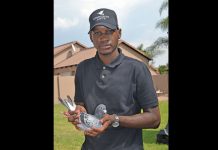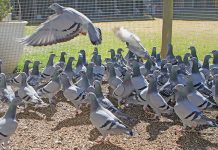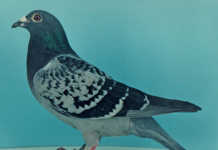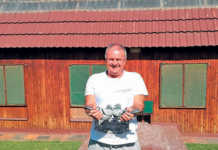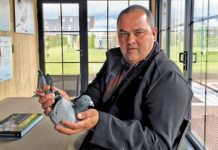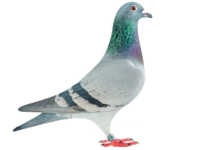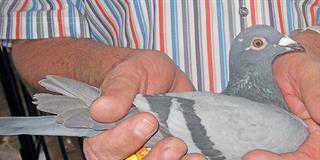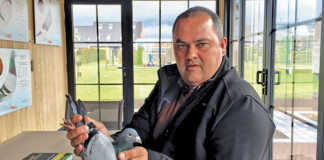Billy kitchenbrand and his wife Leticia are partnership members of the Boksburg Pigeon Racing Club, which has dual membership with the Transvaal Racing Pigeon Federation (TRPF) and Transvaal Homing Union (THU). Billy’s father, Bill, started racing pigeons in 1967, the year Billy was born.
Pigeon dynasties
The Kitchenbrands’ achievements are unequalled in the history of South African pigeon racing. Competing from separate loft locations, Bill and his sons Mark, Kevin and Billy have each been crowned distinguished achievers in different Organisation Point’s League Championships. When it comes to pigeon strains and families, they believe line breeding is essential to maintain winning genes. They then cross-breed the different families for hybrid vigour for racing purposes. The crossed offspring are then mated back into either of the original lines to maintain the gene pool.
Pigeon families used by the Kitchenbrands
The old Putterie family of the late Pieter Schoeman Putteries. He was a legendary SA Fancier, known worldwide as a breeder and selector. Pieter won all championship categories and a number of cars. The Jeff Mortimer family, whose Mortimer Cock has made a formidable impact in producing the highest class offspring.
13/16 Busschaerts. The Busschaerts is an English strain developed by George Busschaerts who had great success when he focused on speed competitions. The Houbens family. Belgium’s Houben pigeons are famous for their achievements in short- to middle-distance Young Bird Racing. The De Klak Janssens, from a rare selection of pigeons bred by the Janssens Brothers of Arendonk, Belgium. De Klak pigeons are strong all-rounders and make excellent cross material.
Pigeons from Gerhard and Cornelis Koopman in the Netherlands. Their pigeons have been much sought-after ever since the Koopmans scored second and third in two different race events in the Sun City Million Dollar Pigeon Race. More recent acquisitions include pigeons from the DeRauw Sablon/Marcel Albrecht lines, which have made a big impact in Europe and are currently classed as the most expensive family of pigeons. Billy and Leticia also keep selected pigeons bought from the Sun City Million Dollar Pigeon Race Auctions, which are crossed with local lines.
Training methods
Billy is a firm believer in training young babies up in December and January, and at least 10 weeks before the racing season to give them enough experience. Training with the older birds starts four weeks before the first race event.
Once well-trained around the loft, the team is road-trained 200km on Saturdays, 50km on Mondays, Wednesdays and Thursdays and 120km on Tuesdays.
Advice to beginners
"To avoid frustration and disappointment on the weekend at strike out, the best pigeons need to be kept in the loft," says Billy.
"If you can, save up and purchase a round, or at least a dozen babies, from a top fancier and race these. They’ll make your life a lot easier and give you confidence.
"Keep the winners and start your family by going back the next year and concentrate on the family that has performed for you.
"The loft is critical," he adds. "It should preferably be made of wood, as this is a good insulator. Good ventilation is also very important.
"Allow for enough loft space – don’t overcrowd the birds. Use glass water bowls, if possible, as these can be washed easier.
"The food must be of the highest quality. This is the fuel of the pigeons and without the best fuel they can’t perform to their best ability.
"These factors will ensure that you have healthy pigeons and, with the right preventative medication at the right time, you should enjoy success immediately."

